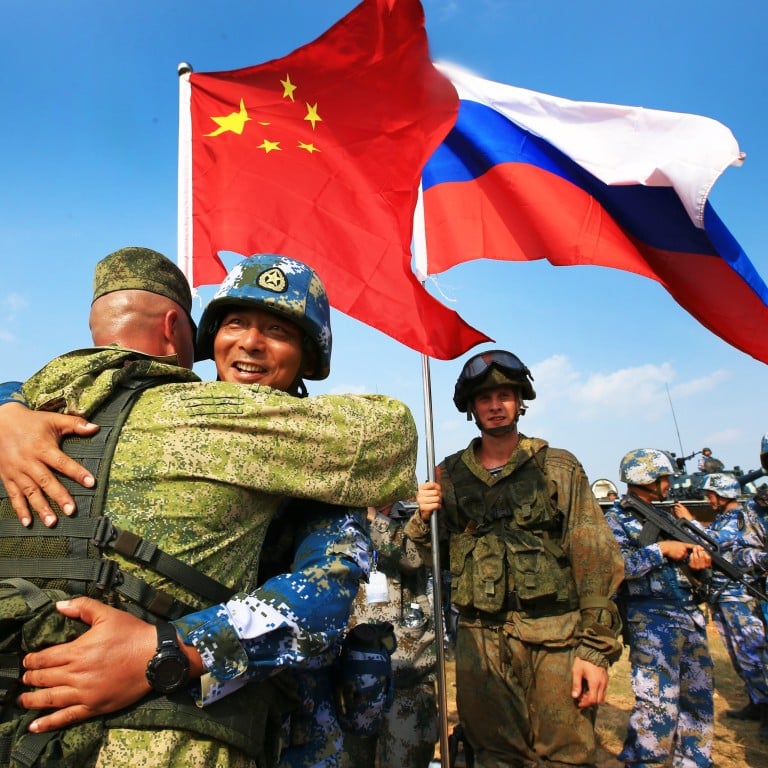
Russia and China compare notes on ‘military use of artificial intelligence’
- Officials meet in Beijing to ‘exchange assessments’ on the state of play of the technology, Moscow says
- Meeting ‘confirms the closeness of the Russian and Chinese approaches’, Russian statement says
During talks in Beijing on Thursday, departmental officials from the two countries had “a detailed exchange of assessments” of the use of AI technology for military purposes, the Russian foreign ministry said in a statement on Friday.
There were also discussions over “the doctrinal guidelines and initiatives of Russia and China” on the issue, the Russian statement said, without saying which officials were involved.
In particular, the two sides agreed to step up coordination under the Group of Governmental Experts (GGE) of the States Parties to the Convention on Inhumane Weapons on Lethal Autonomous Weapons Systems (LAWS), an UN-backed forum on the 1981 Convention on Certain Conventional Weapons.
“The meeting confirmed the closeness of the Russian and Chinese approaches to this issue,” the Russian statement said.
“It was noted that there is a need for further close cooperation in this area both in the bilateral format and in the relevant multilateral platforms, primarily within the framework of the GGE on LAWS.”
The Chinese statement about the meeting did not refer to military use of AI, but said consultations were held over “outer space security, biosecurity and artificial intelligence” – some of the emerging technologies that could define geopolitical rivalries in the future.
Time to set global rules for AI warfare, China tells UN weapons reviews
Thursday’s meeting is part of broader strategic coordination between Beijing and Moscow on traditional and emerging areas – from military and foreign policy to space security and critical materials.
In an effort to set international norms, Washington launched the Political Declaration on the Responsible Military Use of Artificial Intelligence and Autonomy a year ago.
The declaration calls for the establishment of a new legal and diplomatic framework, and has been endorsed by 46 countries, mostly US allies and partners such as Australia, Britain, Canada, Singapore and South Korea.
However, China and Russia have not signed on.
Beijing launched its own Global AI Governance Initiative in October, calling on major powers to take “a prudent and responsible attitude” on military use of artificial intelligence technologies.
Unlike the US and Russia, China has repeatedly declared its support for a legal ban on lethal autonomous weapons systems, which could be significantly improved with AI.
Artificial intelligence is an ability for machines to perform tasks that normally require human intelligence, for example, recognising patterns, translating languages, learning from experience, drawing conclusions and making decisions.
In recent years, cutting-edge technology has been increasingly integrated into a range of military applications, for example, identifying threats, gathering intelligence and guiding crewed and unmanned combat aircraft and vehicles, as well as in cyber and information operations.
There have also been talks over military AI capabilities in decision support systems to help commanders to make better or timelier decisions.
The rapid rise of artificial intelligence has drawn intense debates, particularly over the lethal autonomous weapons systems.
In November, the United Nations adopted a resolution on LAWS for the first time, stressing concerns about the possible negative consequences and impact of autonomous weapons systems on global security and regional and international stability.
This included the risk of an emerging arms race, and a lower threshold for conflict and proliferation, especially for non-state actors.

